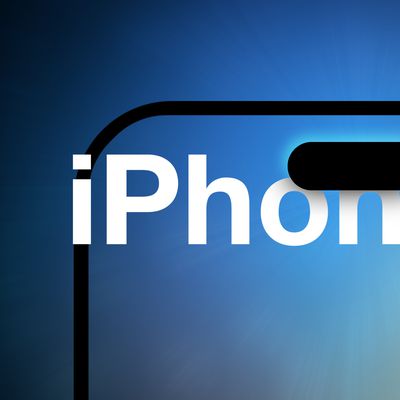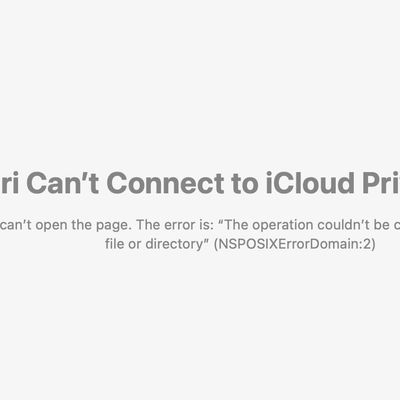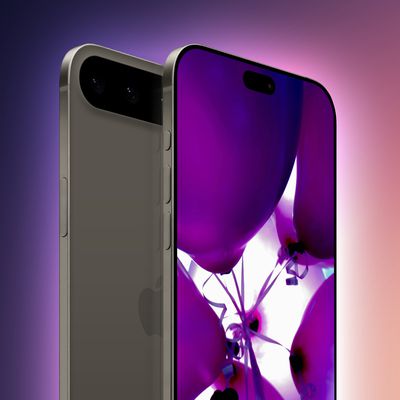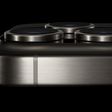HomePod and HomePod mini to Gain Support For Apple Music Lossless Audio in Future Software Update
The HomePod and HomePod mini will gain support for playing back Apple Music Lossless audio in a future software update, according to a newly published Apple Support document.
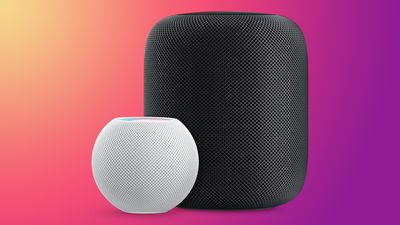
At launch, the HomePod and HomePod mini will not support Apple Music Lossless but will instead feature support for Dolby Atmos for Apple Music. Dolby Atmos, otherwise known as Spatial Audio, creates an immersive three-dimensional experience that simulates music all around the listener. Apple Music Lossless provides listeners with higher quality audio.
In June, Apple will offer Apple Music subscribers a "Standard" Apple Music Lossless tier with audio up to 48kHz, and "Hi-Res Lossless" with audio between 48kHz and 192kHz. Hi-Res Lossless requires external equipment like a USB digital-to-analog converter.
Despite support for Apple Music Lossless in a future software update for HomePod and HomePod mini, the AirPods and AirPods Pro will not be gaining support. In the support document, Apple explains that current Bluetooth doesn't support the higher quality format that Apple Music Lossless provides. AirPods Max will also not support Lossless wirelessly, but Apple says that when used with a cable, the $550 over-ear headphones will play back Lossless audio, although not completely:
The Lightning to 3.5 mm Audio Cable was designed to allow AirPods Max to connect to analog sources for listening to movies and music. AirPods Max can be connected to devices playing Lossless and Hi-Res Lossless recordings with exceptional audio quality. However, given the analog to digital conversion in the cable, the playback will not be completely lossless.
Apple Music Lossless and Dolby Atmos will be available in June with more than 20 million tracks supporting Lossless audio and thousands of tracks supporting Dolby Atmos.
Popular Stories
Following nearly two years of rumors about a fourth-generation iPhone SE, The Information today reported that Apple suppliers are finally planning to begin ramping up mass production of the device in October of this year. If accurate, that timeframe would mean that the next iPhone SE would not be announced alongside the iPhone 16 series in September, as expected. Instead, the report...
Key details about the overall specifications of the iPhone 17 lineup have been shared by the leaker known as "Ice Universe," clarifying several important aspects of next year's devices. Reports in recent months have converged in agreement that Apple will discontinue the "Plus" iPhone model in 2025 while introducing an all-new iPhone 17 "Slim" model as an even more high-end option sitting...
Apple supply chain analyst Ming-Chi Kuo today shared alleged specifications for a new ultra-thin iPhone 17 model rumored to launch next year. Kuo expects the device to be equipped with a 6.6-inch display with a current-size Dynamic Island, a standard A19 chip rather than an A19 Pro chip, a single rear camera, and an Apple-designed 5G chip. He also expects the device to have a...
Apple typically releases its new iPhone series around mid-September, which means we are about two months out from the launch of the iPhone 16. Like the iPhone 15 series, this year's lineup is expected to stick with four models – iPhone 16, iPhone 16 Plus, iPhone 16 Pro, and iPhone 16 Pro Max – although there are plenty of design differences and new features to take into account. To bring ...
Apple’s iCloud Private Relay service is down for some users, according to Apple’s System Status page. Apple says that the iCloud Private Relay service may be slow or unavailable. The outage started at 2:34 p.m. Eastern Time, but it does not appear to be affecting all iCloud users. Some impacted users are unable to browse the web without turning iCloud Private Relay off, while others are...
Apple is planning to release at least one iPhone 17 model next year with mechanical aperture, according to a report published today by The Information. The mechanical system would allow users to adjust the size of the iPhone 17's aperture, which refers to the opening of the camera lens through which light enters. All existing iPhone camera lenses have fixed apertures, but some Android...





